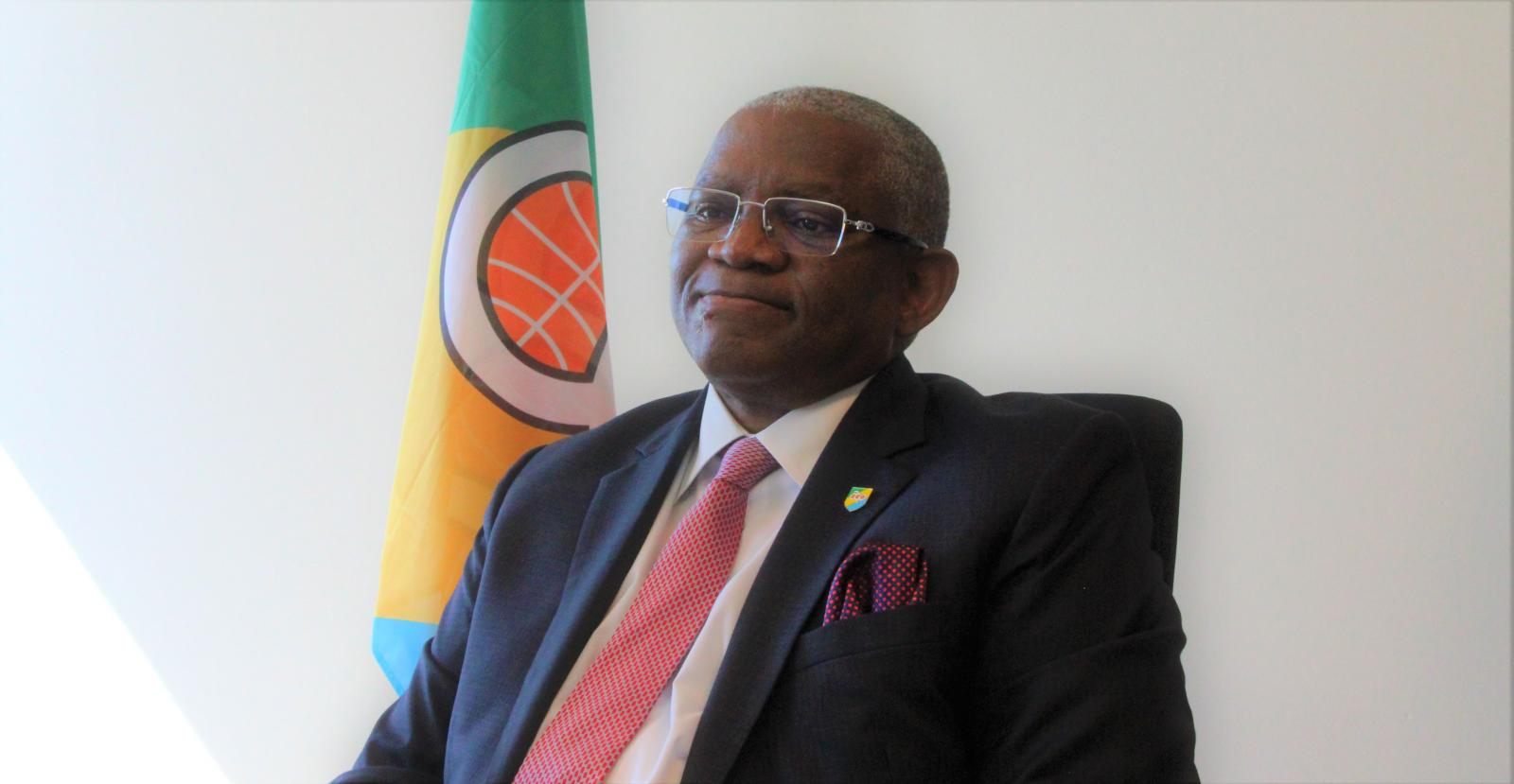OACPS Secretary General advocates for multilateralism to deal with global challenges
 Brussels, 8 September 2021/OACPS: The Secretary General of the Organisation of African, Caribbean and Pacific States (OACPS), H.E. Mr Georges Rebelo Pinto Chikoti, said multilateralism is the appropriate, if not only, framework for effectively meeting global challenges, such as threats to peace and security, the fight against terrorism, violent extremism, organised crime, pandemics, and the ongoing crises of climate change and biodiversity loss.
Brussels, 8 September 2021/OACPS: The Secretary General of the Organisation of African, Caribbean and Pacific States (OACPS), H.E. Mr Georges Rebelo Pinto Chikoti, said multilateralism is the appropriate, if not only, framework for effectively meeting global challenges, such as threats to peace and security, the fight against terrorism, violent extremism, organised crime, pandemics, and the ongoing crises of climate change and biodiversity loss.
The OACPS Secretary-General made the statements at the inaugural African Union-Caribbean Community (AU-CARICOM) Summit held virtually, and chaired by the President-in-office of the OACPS Summit of Heads of State and Governments, H.E. Mr Uhuru Muigai Kenyatta, President of the Republic of Kenya. H.E. Chikoti underlined the OACPS’ commitment to strengthening and promoting multilateralism to enhance the influence of its members on the international scene and to defend their interests while respecting the principles of subsidiarity, complementarity, proportionality and value addition.
“The constituent act of the OACPS, the Georgetown Agreement as revised in 2019, reaffirmed our unity in diversity and solidarity as cornerstones of our organisation. As an international organisation, we cannot overstate the importance of inter-regional cooperation.
“To this end, the full operationalisation of the provisions of the Georgetown Agreement, and in particular the OACPS Inter-Regional Organisations Coordination Committee (IROCC), would ensure greater collaboration and coordination among the various regional organisations of the OACPS.”
Secretary-General Chikoti further added that the new OACPS-European Union (EU) Partnership Agreement, which includes three action-orientated regional protocols, “compels us to strengthen and expand our inter-regional relationships.
“The OACPS is committed to support the African Union/CARICOM relationship, and contribute towards enhanced unity across continents and oceans.
The OACPS Secretary-General said that the “historic summit” has brought together members of two of the three main regions of the OACPS in an environment where no country is secure if all countries are not secure.
“It is only when we act together and in unison that we will achieve our goals, including the sustainable and inclusive development of our countries and peoples. Together, we are stronger, our unity is the vector to attain the Sustainable Development Goals (SDGs) and implement the Paris Agreement on climate change.”
The OACPS Secretary General said that the historical linkages and the increasing importance of the Diasporas in the development of African and Caribbean countries is at the heart of the Summit. “We are committed to promoting and facilitating greater integration and deeper relations among the regions of the OACPS,” he said, adding “this Summit is testimony to your commitment to our regions, the OACPS and the wider global community, to make a tangible contribution to a better, fairer, and more equitable world”
However, as the Members of the OACPS seek to become a part of the global economy, he warned that they face several obstacles, particularly, their size in economic terms, structural weaknesses, the insufficient diversification of their economies, and poor integration with respect to physical infrastructure, to name but a few.
“In this context, regional and transcontinental integration and cooperation make it possible to overcome these challenges by increasing the competitiveness of our economies through economics of scale, improved access to technology, sharing knowledge and good practices, and pooling of resources.
“We must work together to create enabling conditions for including everyone, especially women and young people, in our sustainable development and global economic inclusion strategies,” he said, paying special tribute to the AU and CARICOM “for the progress they have made in deepening regional integration, respectively through the African Continental Free Trade Area and the Caribbean Single Market and Economy (CSME).”
Following the official launching of the new OACPS Centre for South-South and Triangular Cooperation (SSTC) in Malabo, Equatorial Guinea, last week, H.E. Chikoti said he was convinced that greater SSTC, consistent with the OACPS’ vision of creating a free trade area encompassing the African, Caribbean, and Pacific regions, would bring advantages to citizens of these regions.
He made the point that the COVID-19 pandemic has, unfortunately, “reminded us that we are living at a time marked by fundamental changes and often unpredictable, challenges.
“Their complexities and scope are severely testing our ability to both anticipate and respond adequately,” he told the Summit.
See the full presentation HERE.
Source: Caribbean Media Corporation
